Ethiopia
Saada Youssef, from the Oromo ethnic group, lived without problems for years in the important Somali community in eastern Ethiopia. Until recently, local officials told him to leave.
“While we were in the truck, people threw stones at us,” the young woman told AFP, recalling her escape on board a vehicle sent to evacuate inhabitants of the Oromo ethnic group in the neighboring region of Somali.
Her expulsion, Saada owes to the distrust that settled between Oromo and Somali, two of the main ethnic groups of Ethiopia, following several weeks of murderous violence in September along the approximately 1,000 km of border between the two regions.
The violence is difficult to quantify because of restrictions on access to the most affected areas, but the government in Addis Ababa recently estimated that it had led to several hundred deaths.
Saada, 35, found refuge at the end of September in a disused building in Adama, south of Addis Ababa, more than 550 km from Wachale, the eastern locality of the country where she had lived, in the region Somali.
These murderous acts of violence have once again highlighted the tensions that run through the Ethiopian system of governance, called “ethnic federalism”.
It is supposed to offer a degree of autonomy to the various communities in the country – divided since 1995 into nine administrative regions – and its detractors say it is dangerously contributing to exacerbate feelings of ethnicity and to “ethnicize” old land disputes in the the second most populous country in Africa with over 100 million inhabitants.
In addition to the violence between Oromo and Somali, the Ethiopian regime was confronted in 2015 and 2016 by a large movement of anti-government demonstrations in the regions of Oromia and Amhara (north), whose repression by the security forces led to nearly 1,000 dead according to the authorities.
While the events triggering the recent violence between Oromo and Somali remain unclear, their consequences are tragic.
In addition to the death record highlighted by the government, the United Nations has listed 43,000 inhabitants who have fled their homes, a number undervalued according to an Oromo administrative official met by the AFP in Harar in the Oromo region. He said “67,000” people were displaced.
- ‘Everything lost in one day’ –
Survivors of the clashes accuse the government of delaying the deployment of federal security forces to stem the cycle of attacks and retaliation and worry that they will result in a complete break between the two communities.
“All this could lead to ethnic cleansing,” warned Molu Wario, an Oromo who had fled violence in the vicinity of Moyale, on the border with Kenya, because of a land dispute that had degenerated.
“It triggered the hostilities and the relations will never be the same between us,” adds the old man.
According to him, even though disputes are common between communities about the demarcation of administrative boundaries or access to resources (water points, pasture, etc.), they rarely result in violence of such intensity.
The Oromo and Somali leaders accused each other of committing atrocities.
Somali highlight an incident in Awaday, a locality in the Oromia region where, according to them, Oromo killed 18 Somali traders selling khat, a popular euphoria plant in Ethiopia.
Oromo who fled Wachale reported to the AFP that the Somali who had driven them from their homes, armed with knives and firearms, had explicitly referred to the alleged attack on Awaday.
20-year-old Abdel Jabbar Ahmed told AFP that the Somali who had come to chase him told him: “The Oromo have killed 20 Somali in Awaday and so we are going to oust all Oromo from the Somali region.”
Other Oromo displaced persons said that Somali friends and neighbors had sheltered them when the violence broke out and that it was mostly the Liyu police unit in the Somali region, which was regularly pointed at by the defense of human rights, which had been guilty of the worst abuses.
The federal army now controls the main roads along the border, gradually restoring calm after the outbreaks of violence. But among the displaced Oromo, a return to the Somali side seems excluded.
“I’ve saved money there for 20 years and lost everything in one day. Why will I go back?” says Saada. “I have nothing left there.”
AFP




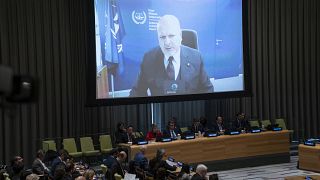
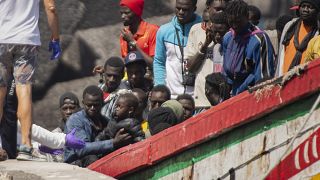
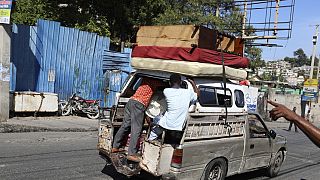
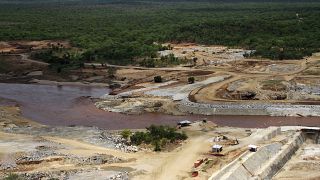

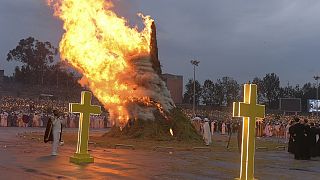
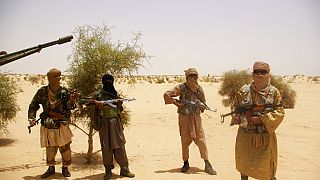
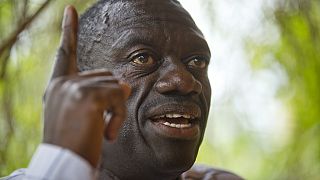

00:58
Somaliland opposition leader wins presidential poll
11:07
Botswana's new government races to diversify its economy {Business Africa}
01:51
Meet the churches welcoming migrants across the world and championing diversity
Go to video
Ethiopian runner Yomif Kejelcha breaks men's half-marathon world record
00:41
Ethiopian PM Abiy Ahmed meets Putin at BRICS Summit, pushes for stronger trade ties
02:10
BRICS: African leaders call for reforms of international institutions